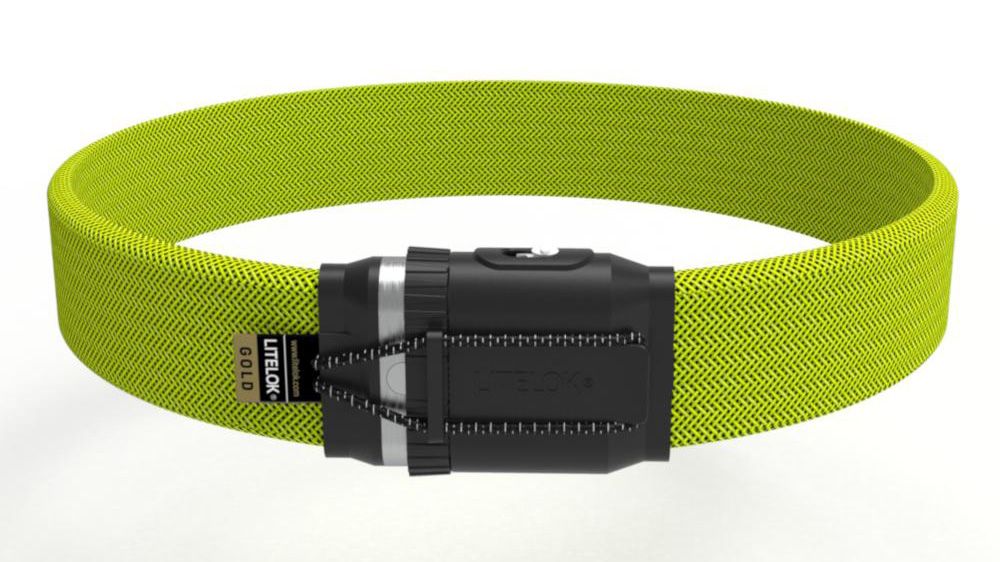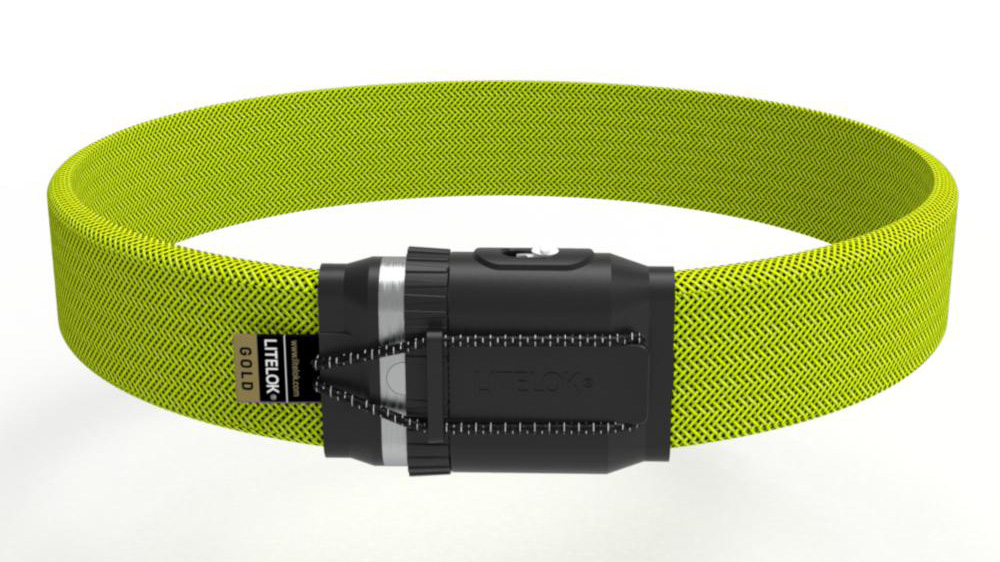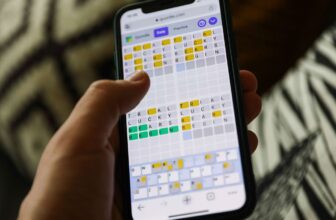We’re all already cyborgs. Whether or not you’re sporting glasses, sensing the size of your automobile as you’re parking, and even “feeling” the feel of your meals as you skewer it with a fork, you might be straight experiencing the thoughts’s potential to increase itself and enmesh itself with know-how – no cyberpunk implants required. As a result of we’re cyborgs, we’ve got a pure inclination to drag instruments and know-how nearer to ourselves, which has performed out within the rise of all the pieces from the Walkman to wearable fitness trackers to, most just lately, the Apple Vision Pro.
However at present’s good gadgets do extra than simply increase our minds. Sitting as they do on the intersection of the bodily and digital worlds, they generate data that mix to explain nearly each side of an individual’s on-line and offline life, creating exactly the form of complete asset that hungry advertisers, governments, and even profession cybercriminals dream of. Wearable know-how has huge promise, however it comes with unprecedented dangers to our privacy. Solely by understanding the size of these dangers can we protect the advantages of wearables whereas selling security and transparency.
Wearable good gadgets make us weak by gathering health-related info, biometric knowledge, location knowledge, and extra, whereas usually commingling these knowledge factors with frequent digital info, together with contact info, buy historical past, or searching conduct someplace alongside the road. The hybrid nature of the info and gadgets ensures that the dangers they pose are simply as multifaceted, however it’s doable to consider them in three broad classes:
1. Technological
Technological vulnerabilities are sometimes most individuals’s first thought when assessing the potential risks of recent tech. It’s a great intuition – in lots of respects {hardware} and software safety represent the primary and final line of protection for consumer knowledge. It’s due to this fact essential to pay shut consideration to the assault floor that wearables current, because it’s bigger and extra advanced than one would possibly anticipate.
First, there’s the machine itself, which may very well be weak to proximity-based assaults through nonetheless it communicates with the surface world. From there, wearables would possibly transmit knowledge to an middleman machine like a smartphone, which itself is weak, after which the info makes its solution to everlasting, centralized storage on proprietary servers. Every step on this course of will be attacked in inventive methods through {hardware} and software program, and it’s more and more doubtless that dangerous actors will strive as a result of richness of the goal. Fortunately, requirements reminiscent of Bluetooth and WiFi have sturdy safety mechanisms to forestall most such assaults, however they’re not excellent. Healthcare knowledge breaches greater than doubled from 2013 to 2023, and it’s doubtless that this pattern might be mirrored in healthcare-adjacent knowledge, too.
2. Regulatory
As is so usually the case, privateness protections have did not preserve tempo with developments in know-how, and what protections do exist are piecemeal and surprisingly slender. Most Individuals have a imprecise sense that their healthcare knowledge is protected (they usually’re vaguely appropriate), whereas an knowledgeable minority know the Well being Insurance coverage Portability and Accountability Act (HIPAA) exists to safeguard healthcare knowledge. What’s not generally understood is that HIPAA applies solely to healthcare suppliers and insurers, and just for personally identifiable data utilized by these entities. This implies there’s a possible regulatory distinction between healthcare knowledge and biometric knowledge produced by a health tracker even when the info level being tracked is similar.
Generalized privateness rules try to fill on this hole, however they’re largely case-by-case. Whereas the EU has one normal (GDPR), as does Canada (PIPEDA), the USA has a state-by-state patchwork of uneven regulation that is still tough to navigate. The Federal Commerce Fee has additionally tried to backstop well being knowledge privateness, citing each GoodRx and BetterHelp in 2023 alone. Absent extra particular privateness protections, nonetheless, such a enforcement will essentially come after privateness has been violated, and nearly all the time on the premise of “misleading enterprise practices” quite than attributable to inherent biometric knowledge safeguards.
3. Instructional
Simply as regulators path know-how, so too does shopper understanding of what’s being tracked, how knowledge can be utilized, and by whom, all of that are needed to provide knowledgeable consent. At the beginning, individuals have to get into the behavior of interested by all the pieces on their wearables as doubtlessly worthwhile knowledge. Your every day step rely, your coronary heart charge, your sleep high quality – the entire enjoyable and helpful insights your wearables generate – start portray a complete image of you that may significantly erode particular person privateness, and it’s all above-board.
This type of knowledge monitoring turns into much more impactful when you concentrate on at present’s strongest gadgets. The Apple Imaginative and prescient Professional by default is aware of the place you might be, what you’re searching, the options of your setting, and even the place you’re wanting and the way you progress your physique. A lot knowledge aggregation permits for deep, profound inferences about people that may may very well be used (hopefully not misused) in methods starting from anodyne to alarming: extra focused adverts primarily based on implied preferences; elevated insurance coverage premiums attributable to way of life decisions or poor remedy compliance; hacker teams revealing somebody’s home is empty in actual time; the record goes on.
Knowledge rollups
Knowledge rollups aren’t confined to gadgets as highly effective because the Apple Imaginative and prescient Professional, both. Shoppers have to be made conscious of how massive tech firms can join their particular person dots throughout a number of gadgets and companies. For instance, shoppers are broadly conscious Google has location knowledge from Android telephones together with search and searching historical past, however fewer know that Google acquired Fitbit in 2021, thereby making all Fitbit-generated knowledge a de facto a part of the Google ecosystem. There’s nothing intrinsically incorrect with this, however shoppers require an ecosystem-level understanding of the entities controlling their knowledge to make knowledgeable decisions.
None of that is to say that the scenario is past restore. Actually, we’ve got to repair it in order that we will safely get pleasure from the advantages of life-changing know-how. So as to do this we want options which can be as complete as the issues. In spite of everything, privateness is a crew sport.
Complete safety
First, we have to embrace extra complete safety and default encryption at each step, on each machine, for all knowledge. Blockchains have a lot to supply when it comes to limiting machine entry, securing knowledge, and leveraging decentralized infrastructure with the intention to scale back the honeypot impact of huge knowledge troves.
Second, as famous above, knowledgeable visibility is a strict prerequisite for knowledgeable consent, so shoppers should demand – and privacy-conscious firms should embrace – absolute transparency when it comes to what knowledge is collected, the way it’s used (and by whom), and with what different knowledge would possibly or not it’s commingled. It’s even doable to check a world by which firms disclose the knowledge they’re seeking to derive primarily based on the info factors they’re aggregating, and shoppers in flip have the power to simply accept or reject the proposition.
That leads us to the ultimate piece, which is nuanced management of 1’s knowledge. Amongst its many flaws, the usual mannequin of extracting knowledge from customers typically presents them with binary decisions: consent and participation, or opting out completely. Shoppers want finer-grained management over what knowledge they share and for what functions it might be used quite than being strong-armed into an all-or-nothing mannequin. As soon as once more, they need to demand it, and privacy-conscious firms can earn immense goodwill by giving it to them.
Finally there’s nothing to be gained by assuming that privateness is doomed to turn into a quaint notion from a bygone period. We must always as a substitute be hopeful that we will discover a steadiness between the unprecedented advantages of wearable know-how and the dangers they pose to privateness, however we will’t afford to attend round for regulators. As an alternative, it’s incumbent upon on a regular basis individuals to coach themselves on threats to their privateness and converse up not simply in favor of higher regulation, however in protection of their proper to personal and management the info they’re creating. If sufficient individuals say it, the business has to hear.
We’ve listed the best smart home devices.
This text was produced as a part of TechRadarPro’s Professional Insights channel the place we characteristic the most effective and brightest minds within the know-how business at present. The views expressed listed below are these of the writer and aren’t essentially these of TechRadarPro or Future plc. If you’re involved in contributing discover out extra right here: https://www.techradar.com/news/submit-your-story-to-techradar-pro






